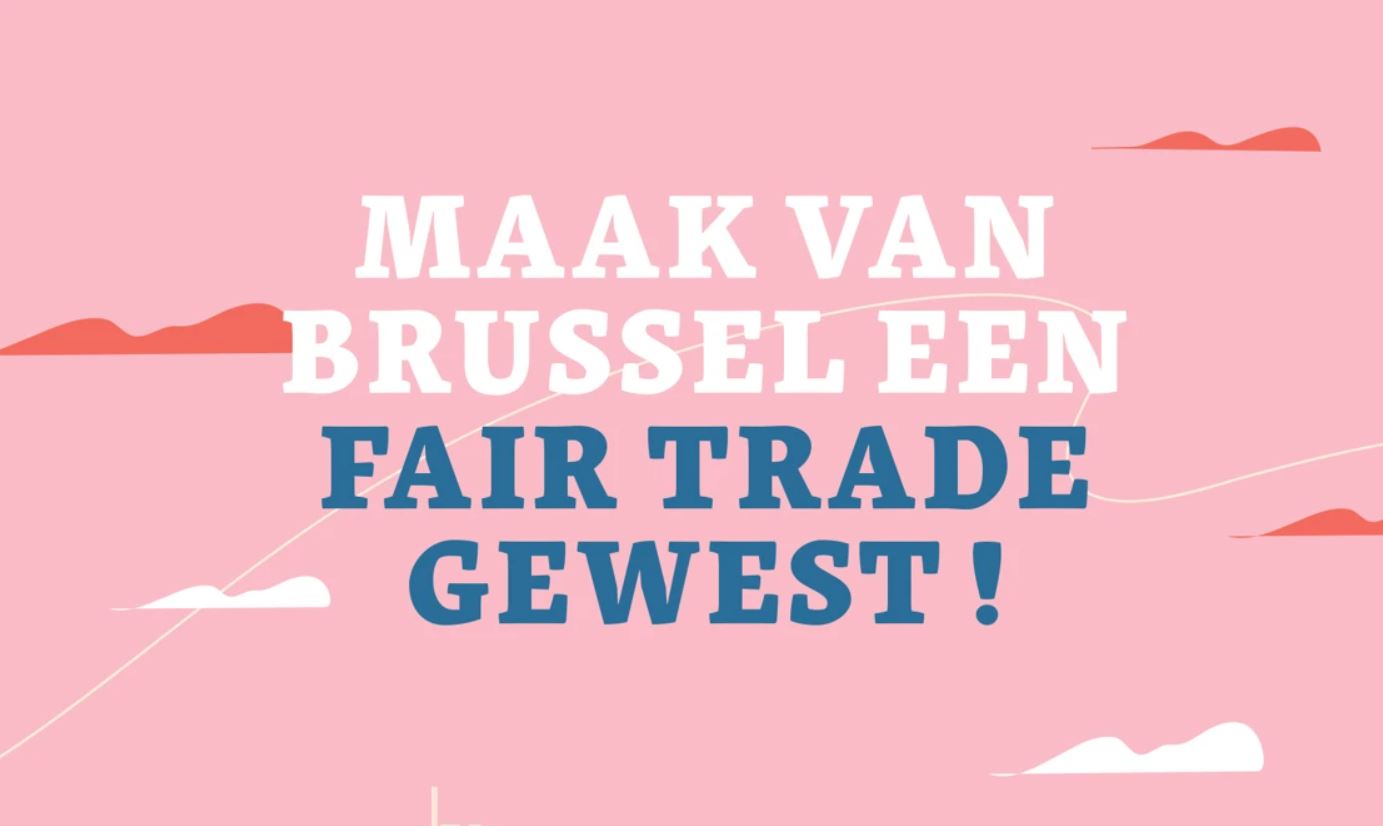Will Brussels become the first Fair Trade Region in our country?
The Brussels-Capital Region has great sustainability ambitions, with fair trade being a real priority. Various stakeholders are now joining forces to make Brussels a Fair Trade Region
The Brussels-Capital Region has great sustainability ambitions, with fair trade being a real priority. Various stakeholders are now joining forces to make Brussels a Fair Trade Region
“Make Brussels a Fair Trade Region” is an initiative of the fair trade platform of the Brussels-Capital Region, together with Pascal Smet, State Secretary for Foreign Trade and Development Cooperation.
“Making Brussels a Fair Trade Region is not only a lever towards social and democratic entrepreneurship, but also, in my view, a necessary commitment to the universal respect of a decent life in Brussels and in the world,” says Minister-President Rudi Vervoort.
“We are preparing Brussels for a bright future. And thinking of the future also means thinking of sustainability and fairness. To become the first Fair Trade Region in Belgium, we have to meet six criteria, to which we are committing ourselves today. As a government, we are going to set a good example. Solidarity, fair work and a fair society start with all of us individually, but also collectively. So, together with all the people of Brussels, we are going to work on this,” says Pascal Smet, Brussels State Secretary for Foreign Trade and Development Cooperation.
“The importance of fair trade cannot be emphasised enough. The fair wages in this sustainable form of trade give the local population a real opportunity for a better life. To me, that is what international solidarity is all about. Together, and with joint efforts at all levels - from local to federal - we can make Belgium a Fair Trade Country,” says Meryame Kitir, Minister of Development Cooperation.
“Making Brussels a fair trade region means pursuing a redistributive and regenerative economy. It means leaving superficiality behind and putting the economy at the service of the people and the planet,” says Pierre Santacatterina, general manager of Oxfam Worldshops.
Brussels must meet six criteria to become a Fair Trade Region:
Criterion 1: Government and parliament of the Region
- The regional government adopts a policy statement in support of fair trade and puts it into practice by means of an annual action plan that is submitted to Parliament before 31 March each year.
- The regional government and parliament purchase at least two fair trade products - including coffee - for consumption at meetings, in the office, in cafeterias and during public events.
Criterion 2: Regional services
- Each regional public service purchases, or agrees to purchase in the context of their future public procurements, at least two fair trade products (including coffee) for consumption at meetings, in the office, in cafeterias and during public events.
- At least 50% of the regional semi-public organisations buy at least two fair trade products (including coffee) or agree to do so in the context of their future public procurements.
Criterion 3: Municipalities
- 51% of the municipalities in the Region have already obtained the title “Fair Trade Municipality”.
Criterion 4: Awareness-raising and media campaigns
- Each regional public service and at least 50% of the regional semi-public organisations regularly promote fair trade to their staff through awareness-raising actions and their own internal information channels.
- Twice a year, the “Make Brussels a Fair Trade Region” campaign can count on external media coverage in the context of an event, press conference, action, the fulfilment of a new criterion or the attainment of the title.
Criterion 5: Steering group
- A diverse steering group, representative for the local actors, will be composed. It will include representatives of the municipal administrations, citizens, associations, fair trade organisations, possibly one or more representatives of the regional administrations, etc. and will coordinate the initiatives necessary to obtain the Fair Trade Region title. Afterwards, it will ensure the continuity of the Fair Trade Region title and its annual reaffirmation.
Criterion 6: Local and sustainable products
- The steering group supports and/or organises initiatives that encourage local consumption and the production of sustainable food products. These may be permanent or short-team annual initiatives strengthening the link between fair trade, local production and the consumption of sustainable food products. A baseline measurement of the already undertaken or ongoing initiatives will be used as starting point.
The fair trade platform consists of the “Fair Trade Municipalities” campaign (by Oxfam-Magasins du monde, Miel Maya and Fairtrade Belgium), the Enabel Trade for Development Centre, BFTF (the Belgian Fair Trade Federation), Brussels International and hub.brussels, in which representatives of local authorities and other associations have seats.


